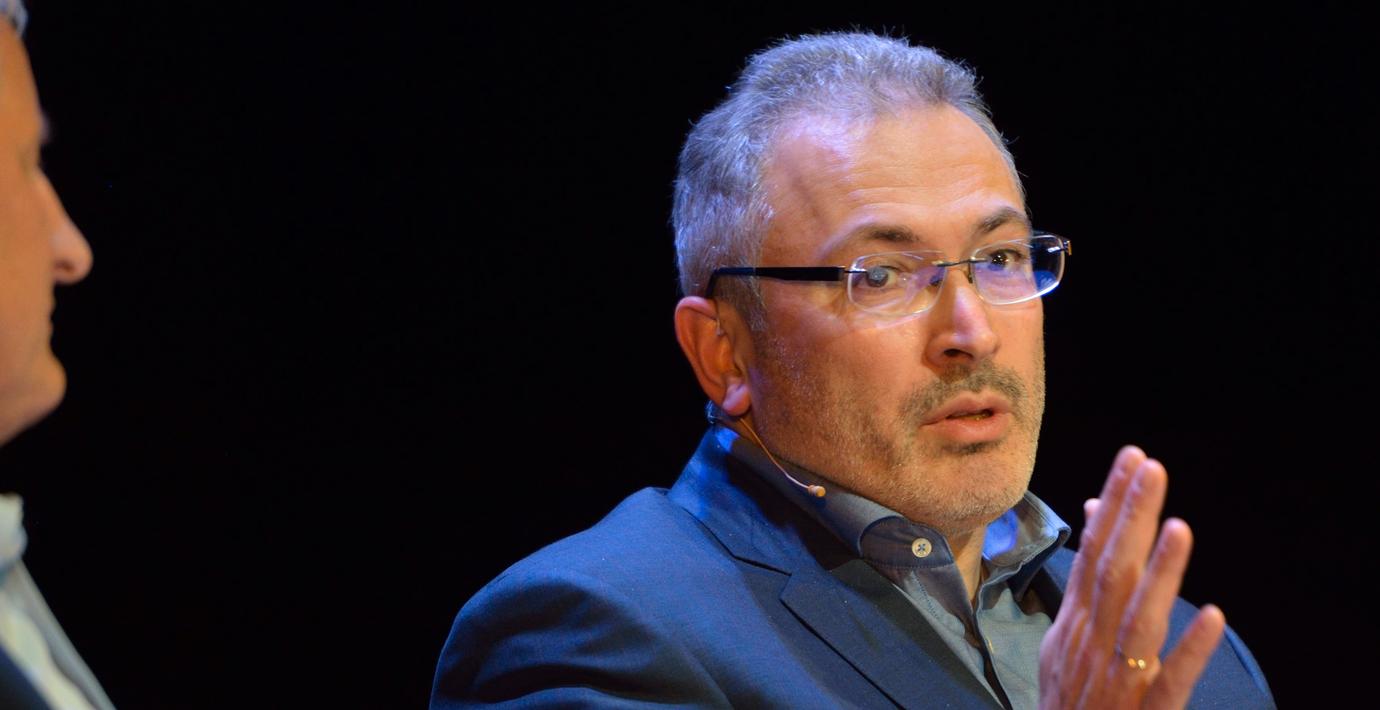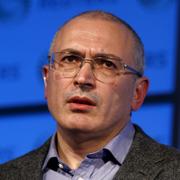
Internationell jakt efter rysk regimkritiker
Ryssland har placerat Michail Chodorkovskij – profilerad Kreml-kritiker som anklagas för ett mord – på listan över internationella efterlysningar. Det säger talespersoner för regeringen, enligt AFP.
Chodorkovskij anklagas för att ha varit inblandad i ett mord på en borgmästare i hemlandet.
Fram till 2003 var han Rysslands rikaste man och lobbade samtidigt för omfattande demokratiska reformer. Då dömdes han för ekonomiska bedrägerier – en dom som Europadomstolen konstaterade var politiskt motiverad.
Efter domen förstatligade Putin-regeringen Chodorkovskijs stora oljebolag Yukos.
Efter att han släpptes fri i slutet av 2013 har han drivit en Kreml-kritisk linje i exil och han antas befinna sig i Storbritannien.
bakgrund
Han driver demokrati- och pressfrihetsfrågor via stiftelsen Open Russia
Wikipedia (en)
Mikhail Borisovich Khodorkovsky (Russian: Михаи́л Бори́сович Ходорко́вский, IPA: [mʲɪxɐˈil xədɐˈrkofskʲɪj]; born 26 June 1963) is a Russian philanthropist and public figure who was a former exiled businessman and oligarch. He is also an author and previously a columnist.
In 2003, Khodorkovsky and Roman Abramovich were jointly named as Person of the Year by Expert. In 2004, Khodorkovsky was the wealthiest man in Russia (with a fortune of over $15 billion) and one of the richest people in the world, ranked 16th on Forbes list of billionaires. He had worked his way up the Komsomol apparatus during the Soviet years, and started several businesses during the period of glasnost and perestroika in the late 1980s. After the dissolution of the Soviet Union, in the mid-1990s, he accumulated considerable wealth through obtaining control of a series of Siberian oil fields unified under the name Yukos, one of the major companies to emerge from the privatization of state assets during the 1990s (a scheme known as "Loans for Shares").
He was arrested on 25 October 2003, to appear before investigators as a witness, but within hours of being taken into custody he was charged with fraud. The government under Vladimir Putin then froze shares of Yukos shortly thereafter on tax charges. The state took further actions against Yukos, leading to a collapse of the company's share price and the evaporation of much of Khodorkovsky's wealth. He was found guilty and sentenced to nine years in prison in May 2005. In December 2010 while he was still serving his sentence, Khodorkovsky and his business partner Platon Lebedev were further charged with and declared guilty of embezzlement and money laundering. Khodorkovsky's prison sentence was extended to 2014. After Hans-Dietrich Genscher lobbied for his release, President Vladimir Putin pardoned Khodorkovsky, releasing him from jail on 20 December 2013.
There was widespread concern internationally that the trials and sentencing were politically motivated. The trial was criticized abroad for the lack of due process. Khodorkovsky lodged several applications with the European Court of Human Rights, seeking redress for alleged violations by Russia of his human rights. In response to his first application, which concerned events from 2003 to 2005, the court found that several violations were committed by the Russian authorities in their treatment of Khodorkovsky. In particular, the court ruled that Khodorkovsky's arrest was "unlawful as it had been made with a purpose different from the one expressed". Despite these findings, the court ultimately ruled that the trial was not politically motivated, but rather "that the charges against him were grounded in 'reasonable suspicion'". He was considered to be a prisoner of conscience by Amnesty International.
Upon being pardoned by Putin and released from prison at the end of 2013, Khodorkovsky immediately left Russia and was granted residency in Switzerland. At the end of 2013, his personal estate was believed to be worth, as a rough estimate, $100–250 million. At the end of 2014, he was said to be worth about $500 million, although he insisted that the sum was only $100 million.
In 2014, Khodorkovsky founded Open Russia to promote several reforms to Russian civil society, including free and fair elections, political education, protection of journalists and activists, endorsing the rule of law, and ensuring media independence. Open Russia, while not a political party, aids particular candidates who are committed to creating a freer and more open Russia.
Omni är politiskt obundna och oberoende. Vi strävar efter att ge fler perspektiv på nyheterna. Har du frågor eller synpunkter kring vår rapportering? Kontakta redaktionen
